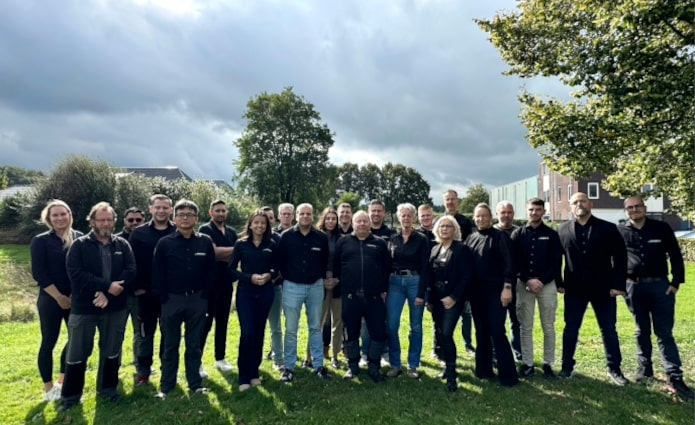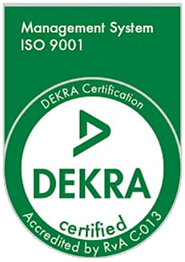Water Sustainability: A Critical Issue for Industry and Communities
Wednesday 11 Dec 2024
Water scarcity and pollution are no longer distant threats; they are pressing realities that directly impact industries and communities worldwide. Whether it’s for manufacturing, mining, agriculture, or energy production, water is an essential resource that drives economic activity and supports livelihoods. However, growing demand combined with environmental pressures calls for a shift in how industries manage and safeguard this critical resource. According to the UN, over 2 billion people live in countries experiencing high water stress, and by 2050, global water demand is estimated to increase by 20-30%.
A Shared Reliance on Water
Industries depend on water for a multitude of essential functions. Manufacturing uses water for cooling and cleaning; mining requires it for extracting and processing minerals; and agriculture relies on it for irrigation and livestock. The energy sector, particularly thermal power plants, also heavily relies on water for cooling systems. The interconnectedness of these industries’ water needs highlights a shared responsibility in ensuring the sustainable use of this vital resource.
However, while many industries rely on water to function, this resource is not limitless. Even in regions where water seems abundant, misuse, overuse, and contamination remain significant threats. The challenge is clear: industries must balance operational demands with environmental responsibility to ensure both immediate and long-term water availability.
Navigating the Challenges
Water, despite its abundance in some regions, is a finite resource that is increasingly vulnerable to overuse, contamination, and climate change. Poorly managed water practices can disrupt operations, harm ecosystems, and affect local communities. Industrial wastewater, if not properly treated, can pollute local water supplies, impacting public health and biodiversity. The World Bank estimates that polluted water costs the global economy trillions of dollars annually due to healthcare expenses, lost productivity, and environmental damage.
Industries face both operational and reputational risks when they fail to manage their water resources responsibly. Companies that do not prioritize water sustainability can find themselves in conflict with environmental regulations, public opinion, or local stakeholders. That’s why it’s more important than ever for businesses to take proactive steps in mitigating their environmental impact and improving water usage practices.
Practical Steps for Sustainable Water Management
Industries have a critical opportunity to lead by example in adopting sustainable water practices. Through innovative technologies, smart management practices, and strategic collaborations, businesses can optimize their water usage while reducing environmental footprints. Here are some practical ways industries can promote sustainability:
- Enhancing Water Efficiency
Adopting advanced systems such as closed-loop processes and water recycling technologies can significantly reduce water consumption. These systems allow water to be reused within industrial operations, lowering the demand for fresh water. Filtration systems, for example, can treat wastewater, making it suitable for reuse in production cycles. By focusing on water efficiency, industries can ensure that they use water more responsibly, reducing both costs and environmental impact. Companies like Ford Motor Company have demonstrated the effectiveness of these strategies, reducing their water consumption per vehicle produced by 72% since 2000 by implementing closed-loop recycling systems.
- Improving Wastewater Treatment
Investing in modern wastewater treatment systems ensures that industrial discharge meets environmental standards, preventing contamination of local water sources. Treated water can be safely returned to the environment, reducing the impact on ecosystems and safeguarding public health. In addition, by improving wastewater treatment, industries can strengthen their relationships with local communities, building trust and enhancing their corporate social responsibility profiles.
- Building Community Partnerships
Water sustainability is not only an industry issue; it’s a community issue. Collaboration with local communities is essential for addressing shared water challenges. Industries can partner with local governments, NGOs, and other stakeholders to support water conservation initiatives or enhance public water infrastructure. Through these efforts, industries can demonstrate a commitment to mutual benefit and long-term sustainability.
Broader Impacts of Industrial Practices
The impact of sustainable water management extends far beyond industrial operations. By prioritizing responsible water use, industries play a key role in ensuring communities have access to clean water. This, in turn, supports agricultural productivity, promotes economic development, and mitigates health risks associated with contaminated water supplies. When industries engage in sustainable practices, they contribute to the broader well-being of the communities where they operate and the ecosystems they depend on.
Moreover, industries that adopt responsible water management practices can help prevent the overuse and depletion of local water sources, which can have cascading effects on biodiversity, agriculture, and public health. The World Resources Institute projects that by 2030, over half the world’s population will live in water-stressed areas, a situation exacerbated by climate change. Sustainable water use isn’t just good for business—it’s good for the planet and society.
How Rhosonics Contributes to Water Sustainability
At Rhosonics, sustainability is at the core of our operations. Our ultrasonic sensors help industries optimize water usage and reduce waste, such as improving water recycling in manufacturing or monitoring slurry density in mining.
Joining the Effort: Supporting Clean Water Initiatives
At Rhosonics, we believe access to clean water is a fundamental human right. That’s why we’re proud to support Charity: Water, an organization dedicated to providing safe drinking water to communities in need. This December, we’re taking it further by pledging to donate 5 euros for every like and 10 euros for every repost of our Charity: Water posts on LinkedIn and Instagram. All proceeds will fund clean water projects in developing countries.
This initiative reflects our broader sustainability goals and our commitment to supporting communities through improved health, education, and economic opportunities.
Join us in supporting Charity: Water by donating directly:
Donate to Charity: Water
Moving Forward Together
Water sustainability is a shared responsibility that requires collective action from industries, governments, NGOs, and local communities. As industries face growing pressure to manage water resources responsibly, they have the power to drive positive change by adopting sustainable practices and leveraging advanced technologies. By taking action now, we can help ensure long-term access to clean water, benefiting both their operations and the communities around them.
Want to have frequent updates on our products? Then please subscribe to our newsletter or follow us on our social media accounts at LinkedIn, Twitter and Instagram.
Receive our technical update?
Fill in your name and email address and we’ll keep you in the loop on our latest technology updates.



